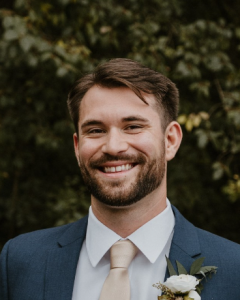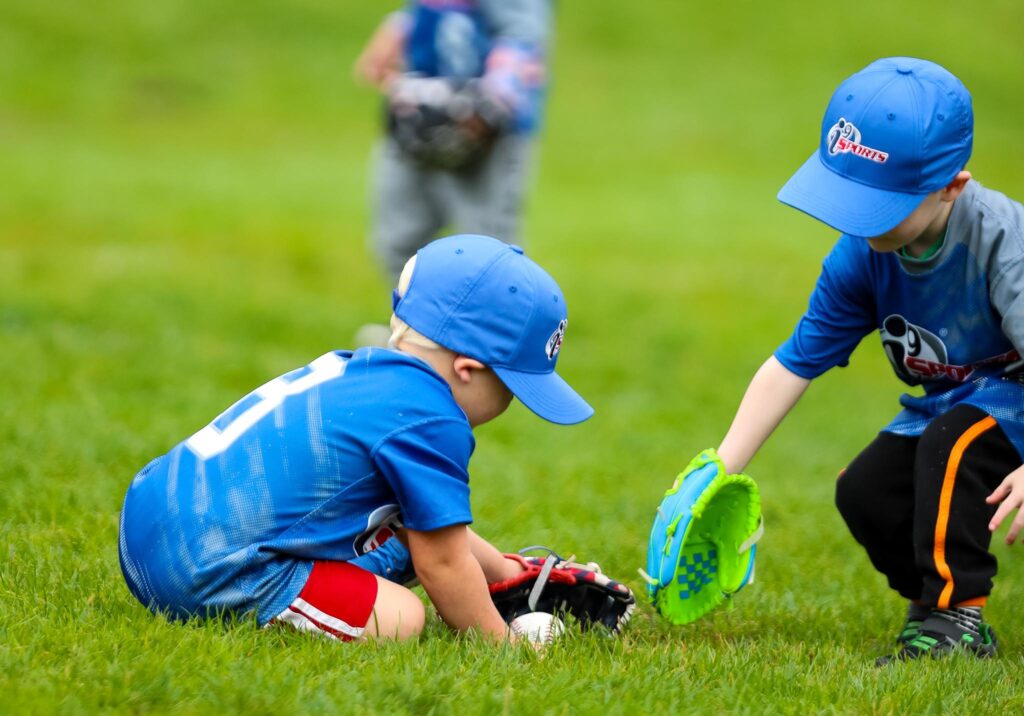Deliberate Play Brings The Focus of Youth Sports Back to The Kids
The pressure to perform often overshadows the joy of sports for kids. The main reason kids play sports is to have fun. Eventually pressure from adults can become overbearing, leading kids to stop enjoying sports. One way to steer the focus back to the kids is an approach called “Deliberate Play.” Based on Adam Grant’s book Hidden Potential, deliberate play can be incorporated into practices to foster a lifelong love for sports alongside skill development.
What is Deliberate Play?
Grant defines deliberate play as, “the combination of practice and play, where you take the skill you’re trying to build, break it down into core elements, and make those elements fun.” Deliberate play encourages creativity, adaptability, and a deeper understanding of the game by allowing kids to engage in enjoyable and intrinsically motivating activities, as well as explore and learn in a low-pressure environment. Parents tend to focus on improving their kids’ physical skills, but often forget about motivating and developing the athlete as a whole in the process.
Deliberate play is a tool that parents and coaches can use that allows for true athlete development that parents desire combined with an athlete-focused, low-stress environment.
How Coaches Can Incorporate Deliberate Play
1. Design Fun Drills
Game-Based Learning: Integrate mini-games that mimic real game scenarios. For example, small-sided soccer games can encourage more touches on the ball and decision-making under pressure.
Skill Challenges: Create challenges that require athletes to use their skills in novel ways, such as dribbling through obstacle courses or shooting at unconventional targets.
2. Encourage Experimentation
Freedom to Explore: Allow athletes to try new techniques without fear of failure. This means letting them play in different positions or attempt creative plays during practice.
Reward Creativity: Celebrate innovative plays and problem-solving efforts, even if they don’t always succeed. This reinforces a growth mindset and the value of experimentation.
3. Foster a Playful Environment
Mix Structured and Unstructured Time: Balance structured drills with free play periods where athletes can engage in spontaneous games and activities. A great time for unstructured or free play is at the beginning and end of practice, this allows kids to start and/or end on a positive memory.
Positive Reinforcement: Focus on positive feedback and constructive criticism. Highlight effort and improvement rather than just outcomes.
4. Collaborative Learning
Peer Coaching: Encourage athletes to teach and learn from each other. Peer feedback can be highly effective and reinforce social bonds within the team.
Group Problem-Solving: Set up scenarios where athletes must work together to find solutions, such as designing a play strategy or navigating a team challenge.
Deliberate play is a powerful tool for developing young athletes’ skills, creativity, and love for sports. By incorporating elements of fun, experimentation, and positive reinforcement, coaches and parents can create a nurturing environment that helps children reach their full potential. Drawing on the principles highlighted in Adam Grant’s “Hidden Potential,” we can transform youth sports into a space where every child thrives, learns, and, most importantly, enjoys the game.
Coach with i9 Sports®
Interested in coaching youth sports and implementing these deliberate play ideas? Visit our Become a Coach page to learn more and fill out our volunteer form.
As an i9 Sports® coach, you will have full access to professionally developed practice plans, drills, skills, and videos that are accessible on the go via our Mobile Coach app to help you provide a positive coaching experience.
About the Author

Tyler Munoz
Manager Of Sport, i9 Sports®
Tyler is responsible for creating and implementing national training programs for coaches and over 240 franchisees to achieve the company’s mission to help kids succeed in life through sports.
Tyler grew up in Modesto, California, playing baseball, basketball and football from the age of 5. Sports have always been at the center of his life and have been something that he has dedicated his life to making a positive impact in.
He discovered his passion - supporting coaches to ensure they can provide a quality sport experience to the athletes that they coach during his education at California State University, Fresno. He earned his Master of Arts in Kinesiology – Sport Psychology and his Bachelor of Arts in Political Science with a Minor in Sport Coaching from California State University, Fresno.
After graduating, Tyler spent a year in New Zealand and Australia, where he studied and participated in the two countries’ sport environments, athlete development systems, and coaching models.
After his travels, he joined the United States Olympic and Paralympic Committee’s (USOPC) Coaching Education Department as the American Development Model and Youth Development fellow. Tyler was able to collaborate and coordinate sport development projects with several National Governing Bodies and assist the Coaching Education team with creating and updating resources related to coach training and the American Development Model.
Tyler continued to consult with the USOPC on initiatives related to the American Development Model the Quality Coaching Framework and ultimately, developed an online course, Foundations of the American Development Model. In 2020, he accepted a position with USA Football as the Senior Manager of Coach Education.
During his three years there, he was able to redesign the organization’s coach education certification, which led to USA Football achieving its’ one millionth coach certification in 2022. Tyler has coached football, baseball, and basketball at all levels of sport (recreational, scholastic, national, and international) throughout his life and is passionate about giving back to the communities in which he has lived.
Presentations and Awards:
College of Health and Human Services- Outstanding Project Award
Presented graduate project at the 39th Annual Central California Research Symposium
Olympic & Paralympic Coach Magazine Spring 2020- ADM & Me: Insights in Learning from my USOPC Fellowship
Presented at the USA Football National Conference 2020
Presented at the National Post Olympic and Paralympic Conference of Sport & Science at the Wingate Institute in Israel
What Does Fun Look Like? - Interview with Athlete Era
